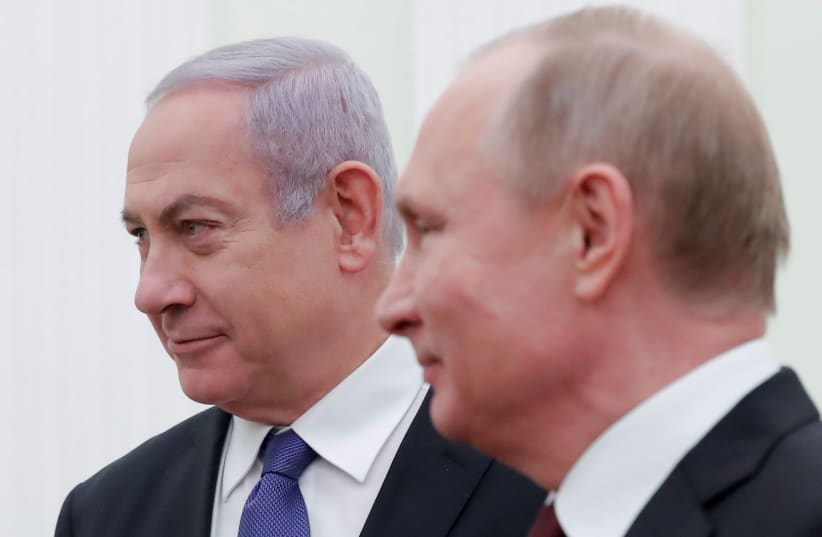Netanyahu to Putin: We'll continue acting against Iran in Syria
Speaking in Hebrew with his words translated into Russian, Netanyahu began his comments by inviting Putin to the inauguration of a Memorial in Jerusalem Commemorating the victims of the World War II.
